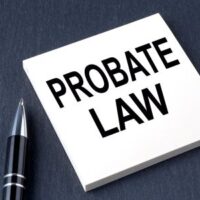Probate Issues That Executors Face

Dealing with the death of a loved one is something we all have to face at some point. This may mean having to handle their estates. For many people, being named as an executor of an estate can be an honor. But it can also be a real headache.
Being an executor means taking on a lot of responsibility. On top of collecting and distributing assets, settling debts, filing tax returns, doing other administrative tasks, and closing out the estate, you may also have to deal with disputes.
Dealing with the probate process is not for the faint of heart. Here are some common issues that you may face.
Disputes With Co-Executors
When parents have more than one adult child, they may name all as co-executors to avoid favoritism. You may think this would make the process easier, but all it does is complicate matters. There is more paperwork involved and there may be delays due to executors being out of state or unable to perform their duties. It’s better to have just one executor who everyone trusts.
Disputes With Heirs
An executor must secure the assets of the estate and distribute them according to the deceased person’s wishes. In some cases, heirs may stake their claim on the decedent’s assets soon after their death. To prevent this, the executor needs to secure the home and other assets as quickly as possible. They can inform heirs about the decedent’s wishes, which may be outlined in a will.
Personal Liability
As an executor, you have to ensure tasks are done in order. For example, you must pay any taxes owed before giving heirs their share. You may be in a hurry to pay heirs first, but this can create personal liability on your end. The estate must have adequate funds to pay taxes. If it does not, you will be personally liable for the taxes. The good news is that Florida has no estate tax or inheritance tax.
Still, there may be debts that need to be paid first. Focus on those. Explain to heirs that you need to settle with creditors first before they can get their assets. Get an idea of the amount of money needed to pay off the debts. Make sure you understand all that is owed so you’re not using personal money to pay for expenses.
Amount of Time Needed
Being an executor takes a lot of time. You will need to contact various government agencies (such as the Social Security Administration) to deal with benefit and tax matters. While a probate attorney can handle many of these matters, there are costs involved and this means less money for the estate. Learn how to get organized and be more efficient with your time.
Seek Legal Help
Probate is not an easy issue to deal with. Being an executor may seem like an honor, but there can be many issues involved.
Do you know what you are getting into? A Fort Lauderdale probate litigation lawyer from Edward J. Jennings, P.A. can guide you through the process. Schedule a consultation today by filling out the online form or calling 954-764-4330.
Source:
investopedia.com/articles/wealth-management/021116/5-surprising-hazards-being-executor.asp
